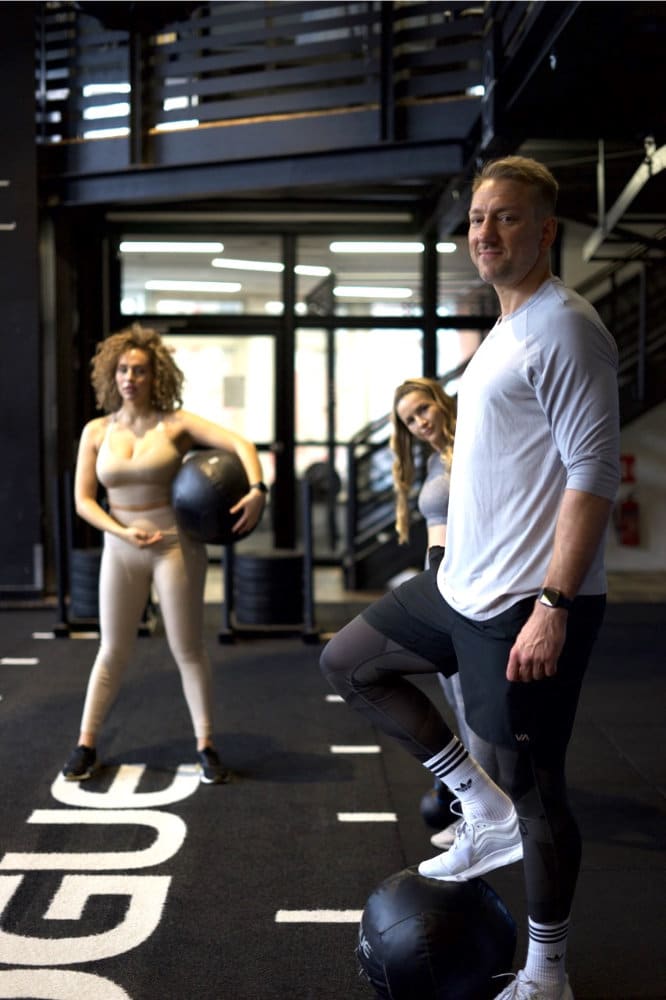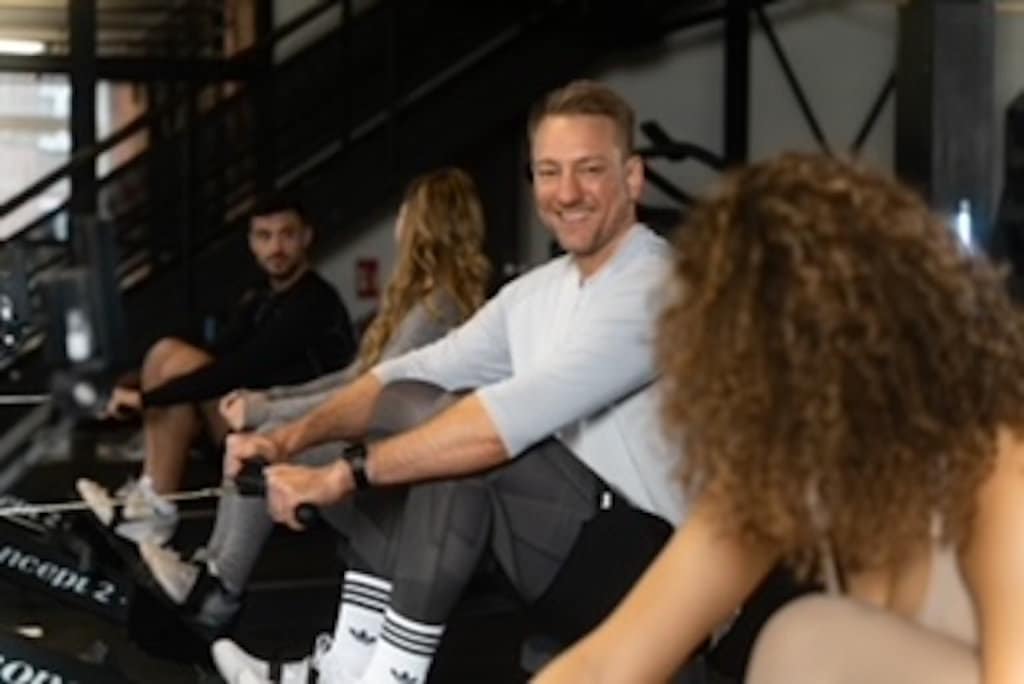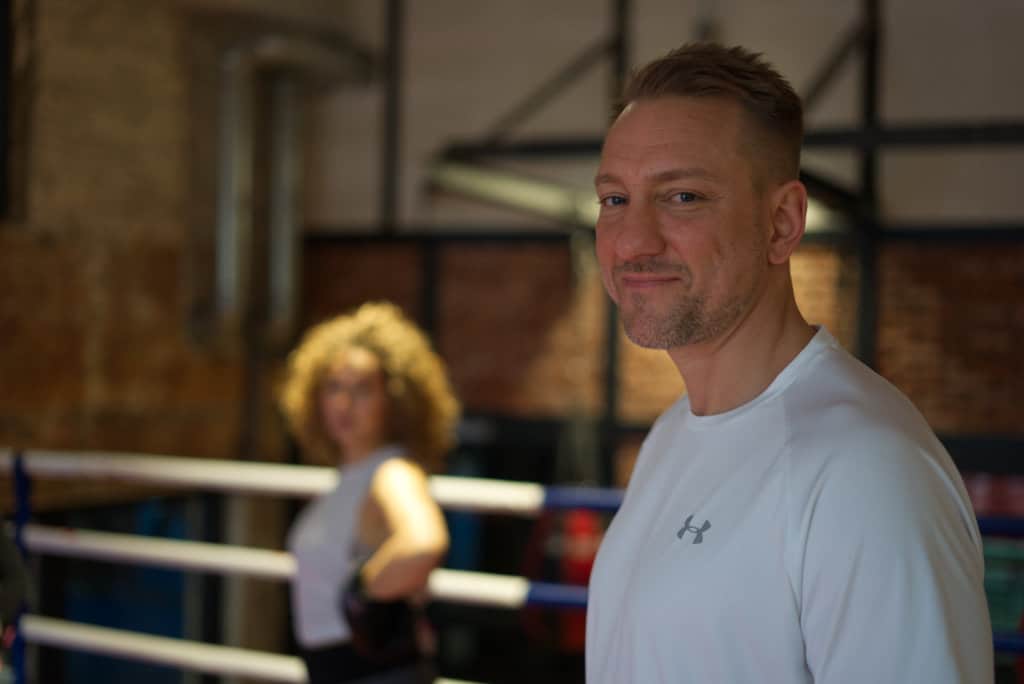Your coach for functional training in Hamburg
Hello, welcome to Functional Training Hamburg!
I am Zeki from Your Boxing Coach – licensed full-time trainer for martial arts, holistic fitness and functional training. Whether related to martial arts or purely fitness-based – I tailor each of my personal training sessions to the individual needs of my participants.
In our individual sessions, I pay particular attention to health-conscious training and varied training methods that constantly challenge your body and mind. In this way, we distract your inner bastard and give boredom no chance at all. It’s less about pumped-up upper arms and more about real strength, endurance, speed, agility and coordination. In my holistic functional training sessions, I will show you your deficits and get you safely to your goal with a constantly changing range of creative exercises!
Sport has been my absolute passion for more than 30 years . My clients tell me time and again that this passion is reflected in my training and in the way I lead my clients to success. My clients consistently achieve great success with regular training sessions over several months. I draw on my many years of experience in areas such as martial arts, rehabilitation, athletics and functional training to make the training as multifaceted as possible.

What exactly is functional training?
Functional training, also known in Germany as functional training, is a form of training in which a large number of muscles or muscle groups work together using complex functional exercises. By definition, functional training must fulfill a purpose or function in order to prepare for everyday life or improve a sport-specific performance.
The training serves to improve the quality of movement and is used to prevent injuries. The core elements are improving coordination and core stability. As with all forms of training, the success of functional training depends on three factors: regularity, a systematic approach and sustainability.
In contrast to multi-joint training, isolated exercises only work one muscle and can therefore be described as non-functional. That’s why our functional training in Hamburg only uses free weights and resistances that require the whole body to move them. And this is exactly where you can see the everyday relevance.
Functional training is geared towards the user and their physical tasks. For example, lifting a box of water always involves a large number of muscle groups such as the leg extension muscles, the knee stabilizing muscles, the gluteal, arm and trunk muscles. Functional, everyday exercises are therefore much more efficient, as they always involve the sensory system of the nervous system so that you don’t lose your balance when lifting, for example. So our aim is to train the muscles and the body in such a way that both work together seamlessly.
Functional training in Hamburg – free trial training*


Advantages of functional training
What you absolutely need to know about functional fitness
How effective is functional training?
Let’s stick with the example of the water crate. If neither your body nor your motor skills have learned how to lift objects properly and you lift them exclusively from your back, you run the risk of injuring the structures of your spine and, in the worst case, suffering a slipped disc. An extreme but not uncommon consequence of improper lifting! Functional training in Hamburg gives your body the strength, coordination and body awareness it needs to move even heavy objects without injury.
Positive effects on other sports
In the area of sport-specific training, functional training can be used significantly to improve the performance of a golf or soccer player, for example. However, the training for both sports is of course designed differently due to the different functional reference.
In the example of the golfer, the training focus is mainly on the core area including the deep trunk muscles, the thoracic spine, the shoulder girdle and the hip muscles due to the tee-specific rotation of the upper body.
The training of the soccer player differs in that the function of the leg muscles and the stabilization of the knees come to the fore. In order to be able to chase around the soccer pitch for 90 minutes and compete in ball duels, it is necessary to strengthen the gluteal and calf muscles, as well as all the joint-spanning muscles of the ankles and knees.
The more we integrate functional training into our everyday lives, the better our body can function as a holistic, coordinated unit. A huge, often mentioned advantage of functional training is that it trains the necessary awareness (proprioception) with which your body is controlled automatically and completely subconsciously. And it doesn’t matter whether you’re saving yourself from a fall after contact with an opponent at soccer, or stumbling over a tree root on a walk in the woods and stabilizing yourself again in a flash. All these skills are effective in improving your performance and protecting your health.
More exciting questions
As functional training supports the body’s ability to perform everyday functions, it makes it easier to carry shopping bags or climb stairs. This special form of training involves dynamic and multidirectional whole-body movements and therefore differs from conventional strength training. This can be done by training the leg muscles with plyometric lunges rather than simply sitting in a leg press. This way, far more muscles are innervated as we stand, kneel or balance on one foot and it also improves endurance, core stability and balance.
In addition, both the training equipment and the selection of exercises for functional training are more extensive. Our tools include kettlebells, dumbbells, resistance bands, Pezzi balls, balance pads, swing bars, coordination ladders, sandbags and medicine balls.
However, functional training does not necessarily require training equipment to be successful. For some exercises, our own body weight is enough to make us break out in a sweat after just a short time. In my training sessions, I design a combination of exercises with my own weight and exercises with training equipment. Depending on the customer and the task, we then carry this out in sets or as high-intensity HIIT training (High Intensity Interval Training).
Basically, you can say that all exercises with your own weight, free weights such as dumbbells, barbells, kettlebells, resistance bands or medicine balls are counted as functional training if they involve several joints and therefore different muscle groups. A functional training program should include movements on several levels. It should also include forward and backward movements, as well as alternating movements from side to side and rotational movements. What ultimately makes an exercise functional varies for each of us and depends on our goals and fitness level.
Functional exercises require free weights, not machines. Machines offer guided movement sequences that are very specific and largely rigid. While all forms of training fulfill a function, not all forms of training are included in the functional fitness definition. For example, the bench press is not considered a functional fitness exercise because it is not an everyday movement that we perform constantly in our daily lives. The same applies to the hammer curl machine or the leg extension machine. In everyday life, you need more than just your biceps to lift things. The same applies to the leg extensor muscles, which are also never used exclusively. This always involves the gluteal muscles, the back leg muscles and the core. From the point of view of sensible strength training, it is therefore much more efficient to train the muscles in such a way that they work together optimally. A form of training that is used to increase performance and reduce the risk of injury, particularly among older people.
Trial training requests
- Möchtest auch du richtig fit werden und deine gesetzten sportlichen Ziele in kurzer Zeit erreichen?
- Möchtest du unter professioneller Anleitung und in bester Trainingsumgebung trainieren und deine Ziele erreichen?
- Plagen dich Rückenschmerzen oder Gewichtsprobleme?
- Möchtest du deine Akkus wieder aufladen, weil dir der Druck in der Arbeitswelt zu schaffen macht?
Then you’ve come to the right place! Our Functional Training Hamburg can be reached in just a few minutes if you come from the Hamburg districts of Altona, Bahrenfeld, Ottensen, Othmarschen, Blankenese, Iserbrook, Nienstedten, Rissen, Groß Flottbek or Eimsbüttel.
Sign up for your personal trial training today.
A voucher is also ideal as a gift.